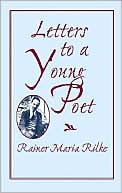 One day fourteen-year-old Sophie Amundsen comes home from school to find in her mailbox two notes, with one question on each: "Who are you?" and "Where does the world come from?" From that irresistible beginning, Sophie becomes obsessed with questions that take her far beyond what she knows of her Norwegian village. Through those letters, she enrolls in a kind of correspondence course, covering Socrates to Sartre, with a mysterious philosopher, while receiving letters addressed to another girl. Who is Hilde? And why does her mail keep turning up? To unravel this riddle, Sophie must use the philosophy she is learning--but the truth turns out to be far more complicated than she could have imagined.
One day fourteen-year-old Sophie Amundsen comes home from school to find in her mailbox two notes, with one question on each: "Who are you?" and "Where does the world come from?" From that irresistible beginning, Sophie becomes obsessed with questions that take her far beyond what she knows of her Norwegian village. Through those letters, she enrolls in a kind of correspondence course, covering Socrates to Sartre, with a mysterious philosopher, while receiving letters addressed to another girl. Who is Hilde? And why does her mail keep turning up? To unravel this riddle, Sophie must use the philosophy she is learning--but the truth turns out to be far more complicated than she could have imagined.I've always been interested in philosophy but I've never been able to fully grasp it. So I thought that approaching it through fiction could help me to unravel some of its mysteries. It did a lot more than that.
This is one the most soul-searching books I've read in a while. I admit that I'm exhausted; but happily exhausted. It's been quite a ride. To go through centuries of human thought, to follow the different processes of thinking and understanding them is exhausting but rewarding. You get but the tiniest glimpses of human knowledge but those glimpses are so powerful and alluring that you can't help wanting to learn more.
This isn't a fully comprehensive book and it's been argued that it's occasionally undermined by dry language and by an idiosyncratic bias that gives one paragraph to Nietzsche but dozens to Sartre. Like I said before, this isn't a textbook; it's merely a start. It's supposed to arouse your curiosity not to satisfy it completely (to assume otherwise would be a sad contradiction). Gaarder just gives you the very basics of philosophy, with clear, concrete examples, and a mystery to unlock. Is there anything else you could wish for?
This isn't a fully comprehensive book and it's been argued that it's occasionally undermined by dry language and by an idiosyncratic bias that gives one paragraph to Nietzsche but dozens to Sartre. Like I said before, this isn't a textbook; it's merely a start. It's supposed to arouse your curiosity not to satisfy it completely (to assume otherwise would be a sad contradiction). Gaarder just gives you the very basics of philosophy, with clear, concrete examples, and a mystery to unlock. Is there anything else you could wish for?
Now I finally feel a little bit more confident to tackle Russell's History of Western Philosophy. Eventually.
10 Comments:
Subscribe to:
Post Comments (Atom)

Oh well. Now I have 31 books on hold.
Court, I know I wouldn't have been able to tackle this book as a teen. Give it a try but take it easy; it is overwhelming.
Poodlerat, you crack me up! And yes, I totally get the feeling.
I had such a bad professor (I’m convinced that she hate her philosophy classes too). Once she told that “Thus Spoke Zarathustra” has written Herman Hesse!?!?!? That should tell you all abut her skills!
Anyhow I wasn’t interested in Sophie’s World but my girlfriend insisted so I took it and this is definitively one of the most original books I’ve read. I bought it for my friend and he was studying from there for his philosophy exam on the faculty!
Great book indeed!
Milan, I can see why you hated your classes! lol and I wish I had had this book during mine. Everything would've been easier.
I recommend it to everyone as it opens your mind. It is so well written, and deals with many very difficult ideas but in a way that YAs can understand and enjoy (IMO)
Great review, Richard